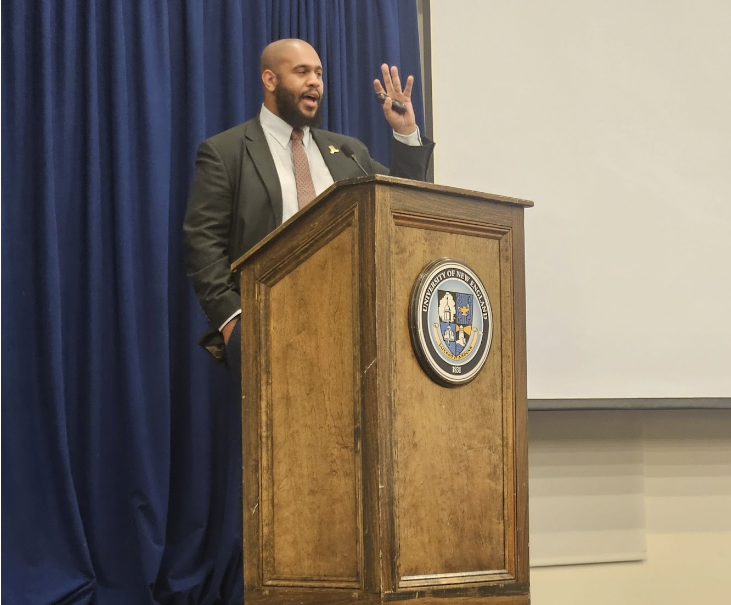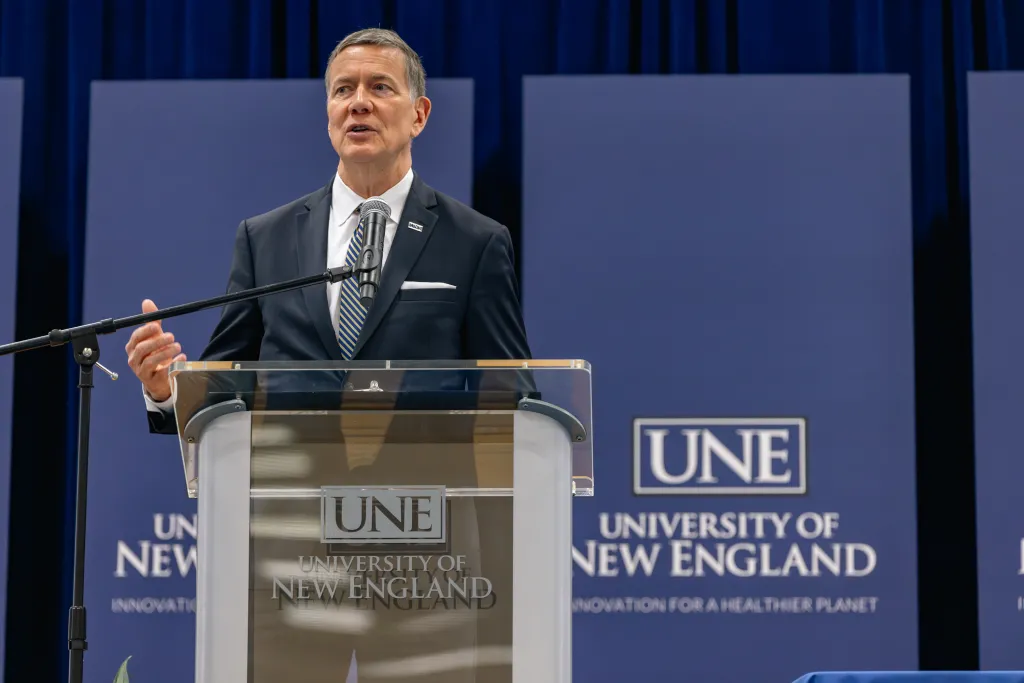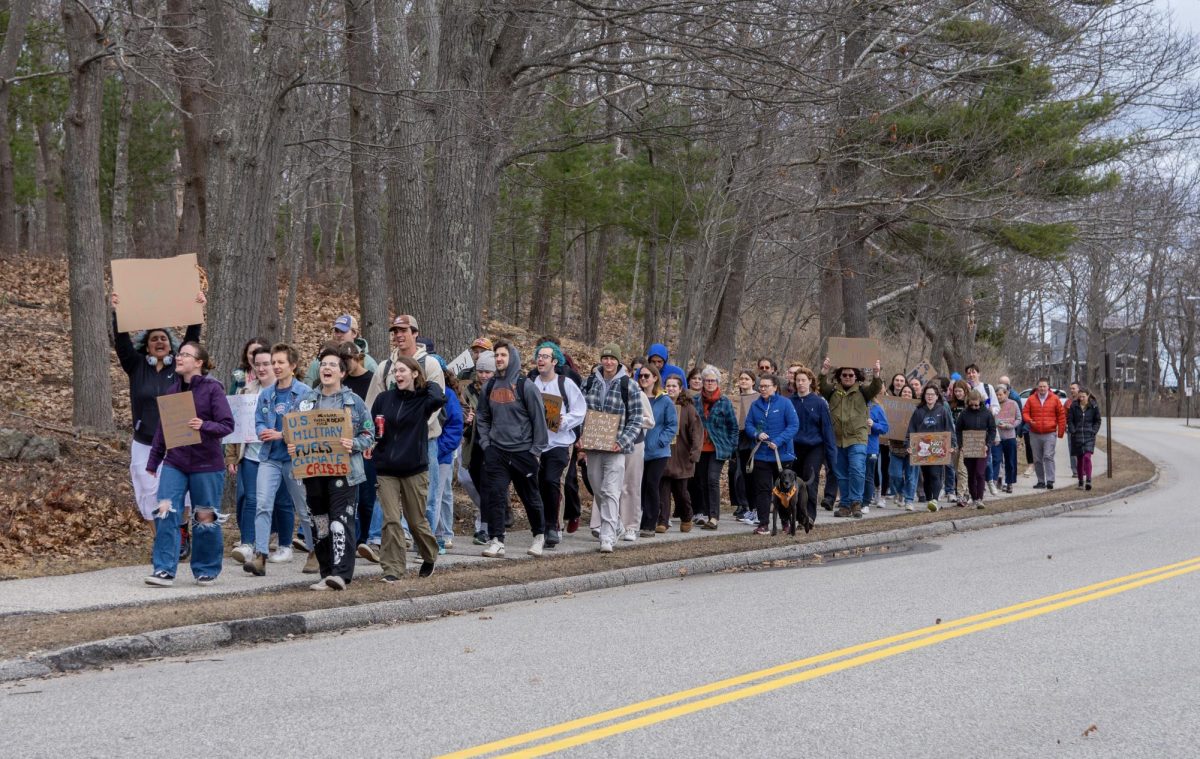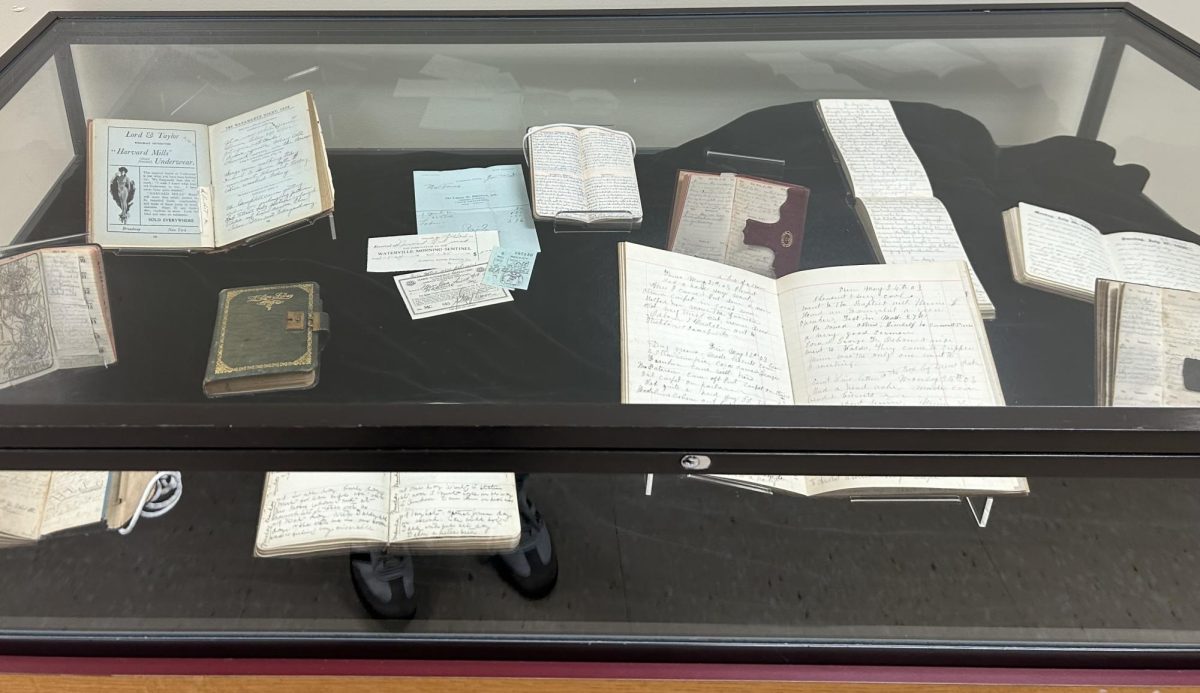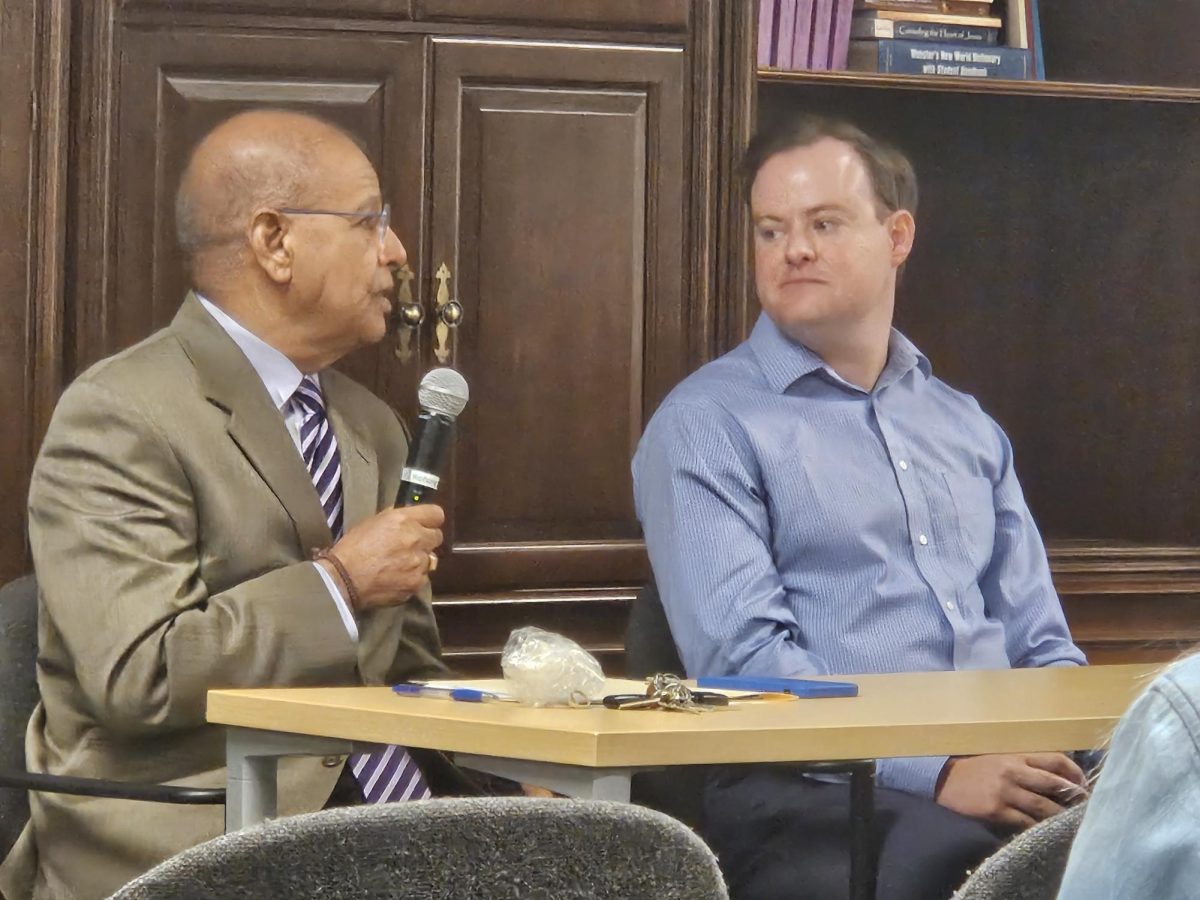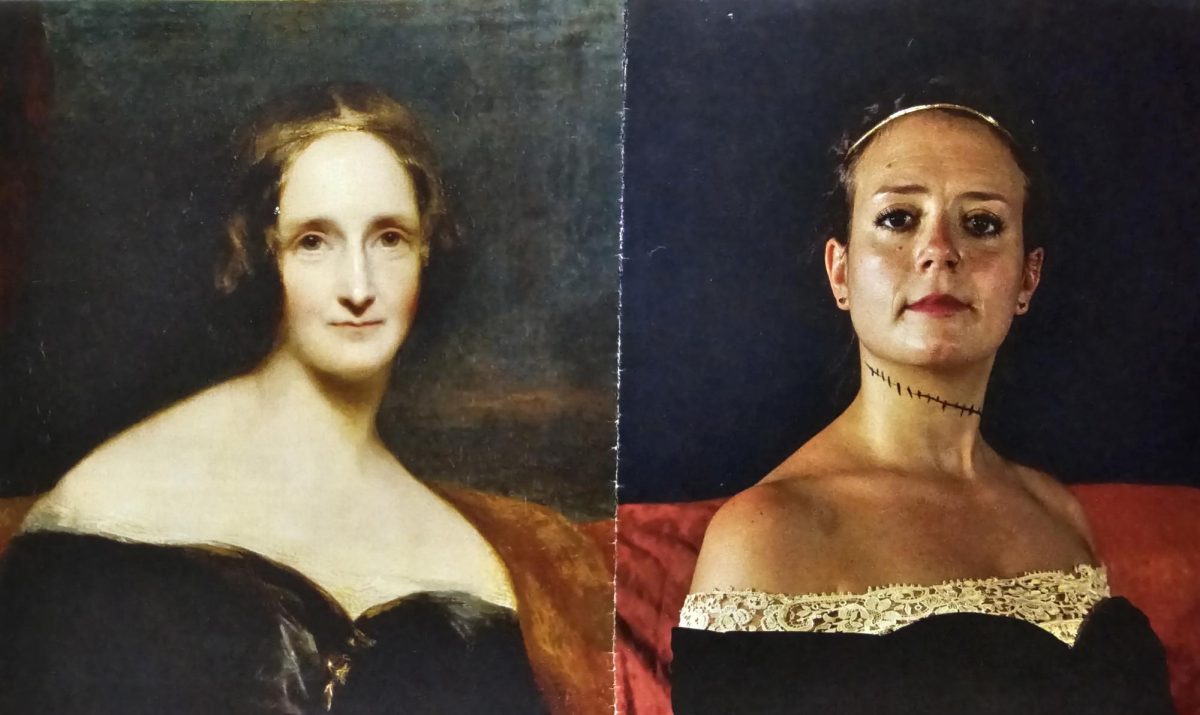On October 23rd, assistant professor of sports management Sayvon JL Foster came from the University of Kansas to give a lecture on how college sports affect the greater culture and community surrounding schools.
The audience was comprised of students, current and former members of UNE faculty and staff, members of the local Biddeford community, and a visiting rugby team from Mongolia.
Prior to the lecture, Center for Global Humanities (CGH) director Joshua Pahigian announced plans to bring more CGH events to the Biddeford campus. There is already a second Biddeford campus event planned for February during this year’s spring semester. If turnout continues to be as high as this event, there is the hope that CGH lectures in Biddeford will become more regular.
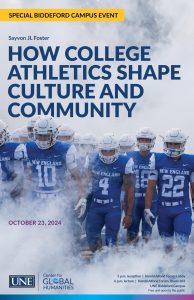
The core of the lecture was on the idea of cultural reproduction.
When creating an institution such as a college or university, people impart their own core values and culture to that institution. The institution then proceeds to pass those values onto other members of the community, such as students, who then put their values back into the institution. Sports, says Foster, reflect the values of the community and culturally reproduce.
In his talk highlighting the different traditions of various college sports programs, Foster expressed his admiration for the uniqueness of various distinct traditions, including Brigham Young University’s tailgating tradition of community service or UNE’s own Nor’easters for taking something as destructive as a winter storm and making it part of our identity as a school.
Foster’s talk was more lighthearted and approachable than most of CGH lectures, and purposefully so. During a pre-event lunch, Foster stated he didn’t want his talk to feel “too academic-y.” Foster, who grew up in Columbus, Ohio, and was surrounded by the avid sports culture of Ohio State University, became fascinated by the way sports cross cultural divides. His work is dedicated to analyzing the “deeper meaning behind sports” and how sports traditions evolve with new generations.



